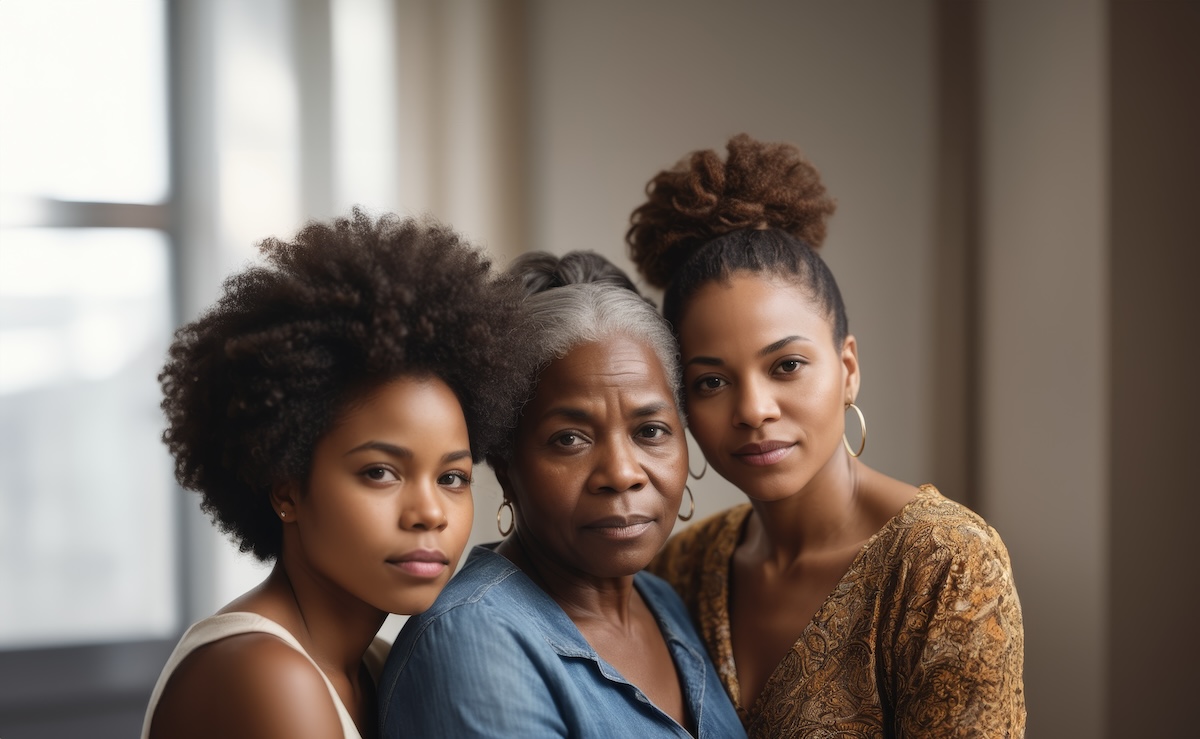
In January of this year, the American Cancer Society released its annual survey on cancer trends and mortality rates. The good news is that cancer rates in the U.S. declined by 34 percent between 1994 and 2022. The bad news is that cancer survival rates for Black women, including breast cancer and other cancers, have not improved.
Breast cancer is the number one cause of death among Black women in the U.S. In fact, according to the study. Black women under age 75 have a 38 percent higher mortality rate than their white counterparts
Unfortunately, this is consistent with poor health outcomes from Black women in areas such as cardiovascular disease and stroke, diabetes, and maternal mortality.
The report suggests that the same things that have improved overall cancer mortality rates, including better and earlier screening and aggressive treatment and clinical trials, have not been as accessible to Black women in this country. Health equity advocates are sounding the alarm on behalf of Black women.
Ifeoma Udoh, Executive Vice President of Policy, Advocacy, and Science at the Black Women’s Health Imperative, says that the screening standards set by the U.S. Preventative Services Task Force (USPSTF)’s recommendations “often overlook the specific health needs of Black women.”
The official updated guidelines suggest screening every two years beginning at age 40, a change from previous recommendations that recommended starting at age 50. Being screened and diagnosed earlier has marked progress, but Udoh says it isn’t enough. She says, “It insufficiently addresses the unique challenges and earlier risks faced by Black women.” Often, Black women develop more aggressive cancers, and often at younger ages.
Magnolia Contreras, Vice President of Community Health at Dana-Farber Cancer Institute (DFCI) in Boston, says many reasons for the disparities in health outcomes must be addressed. Some are about access, and others could be physical. “Often, Black women have denser breasts,” she says, which can make them harder to screen. “We have hope for continued progress in treatment because science is moving so fast,” Contreras says.
She and Udoh agree that there is a vital role for clinical trials that include Black women. Historically, Black women have not participated in trials and are significantly included in data gathering and analysis.
While advances are being made in cancer treatment, Udoh says, “trials that don’t have a large enough cohort of Black women won’t have enough data.” She says the data should not be generalized—in other words, there is no one sized fits all. “it will take institutions to double down on behalf of Black, Brown, urban and rural women,” and with the uncertainties in federal funding of research and access to care, within the new administration things could get worse. “But we must remember that the Feds are not the only sources of funding.”
Contreras says that DFCI works closely with individuals and communities on access and affordability. She also says that DFCI has a valuable confidential tool on its website called Assess Your Risk that can help any woman assess her potential risk for breast and cervical cancer. “Women can print it out and share it with their own providers,” Conteras says.
Table of Contents
Consider the ways that you can manage your risks on your own.
Here’s what you need to consider doing starting now
Take time to know your family health history.
Does cancer run in your family?
Talk to family members on both sides of your family.
- Many women make the mistake of only looking into their mother’s side of their families.
- But breast cancer risks can be passed down from the paternal side of your family.
- Find a doctor or provider you feel comfortable with and set regular appointments. It is always best to have that first visit before you need it. While you are there, schedule your annual mammogram.
Financially, it is easier to get screened if you have health care coverage through your employer, Medicaid, or Medicare.
- But if you are currently uninsured, check out your options within the Affordable Care Act or programs in the community that offer low or no-cost mammograms and other cancer screenings. Many areas even have mobile mammogram vans that offer free screenings.,
Tweak your wellness and lifestyle.
- Clean your diet by reducing salt, sugar, and processed foods, including sodas. Give up smoking, manage stress, and get into a regular exercise routine to reduce your risk for heart disease, cancer, obesity, and other chronic diseases.
- Also, reduce your consumption of alcohol, which can increase your cancer risks.
























